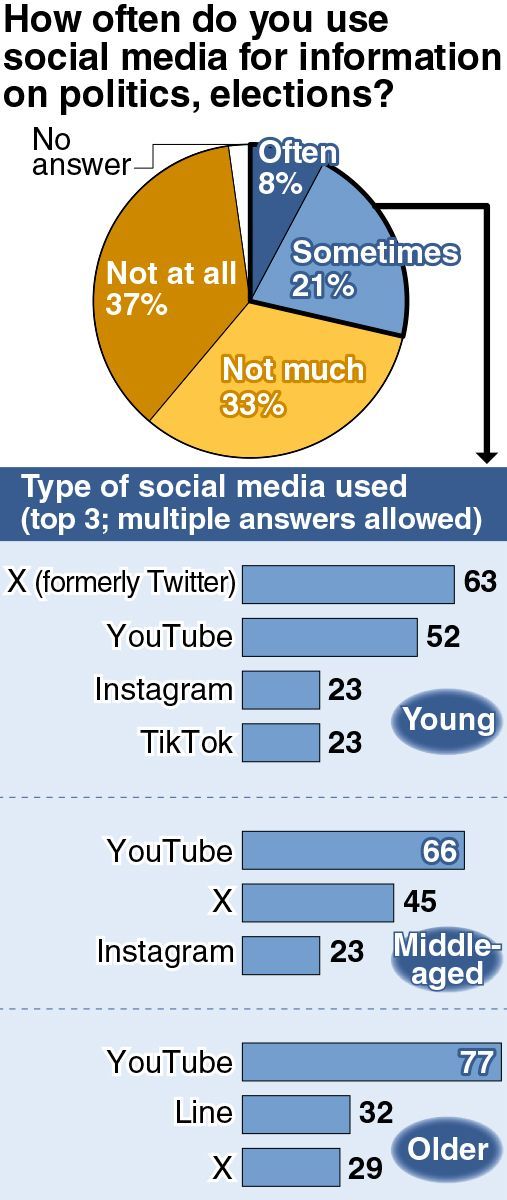April 29, 2025
TOKYO – A nationwide poll recently conducted by The Yomiuri Shimbun showed that many voters distrust election-related information on social media. With the House of Councillors election approaching in the summer, the ruling and opposition parties need to accelerate discussions on how to regulate election campaigns’ use of social media.
From delusion to diffusion
During the gubernatorial election in Hyogo Prefecture last November, NHK Party leader Takashi Tachibana repeatedly asserted on social media that Gov. Motohiko Saito did not engage in the workplace “power harassment” that he was being criticized for. Based on Tachibana’s words and actions, a 31-year-old man living in Hokkaido came to believe that the allegations of harassment were a conspiracy.
The man posted a video of highlight clips from a Saito street speech on X, formerly known as Twitter. Celebrities responded to the video and spread it, resulting in the video being viewed more than 15 million times. The number of the Hokkaido man’s followers skyrocketed as well.
The Hokkaido man also repeatedly attacked members of the so-called Article 100 Committee, which was set up by the prefectural assembly to investigate Saito, calling them “liars” and saying they should quit.
However, in January of this year, when Tachibana posted that a former Hyogo prefectural assembly member who had died had been scheduled to be arrested, the prefectural police chief denied the claim as “completely untrue.”
In March, Saito acknowledged and apologized for the first time for the workplace harassment that the prefecture’s third-party panel found he committed.
The man in Hokkaido came to regret his actions, saying: “I was overly credulous about social media and spread false information. I’m sorry if there were voters who believed it.”

GRAPHICS: THE YOMIURI SHIMBUN
A sense of crisis
In the Yomiuri opinion poll, 69% of respondents said they did not trust election-related information on social media. The survey also revealed that 84% of the respondents were “concerned” about the impact of disinformation on social media. Voters appear to have significant worries about the current situation, in which disinformation online can influence the outcome of an election.
“This may be a result of the sense of crisis and disgust among voters nationwide after the Hyogo Prefecture gubernatorial election, which was influenced by disinformation and slander on social media,” said Masaaki Ito, a professor at Seikei University and an expert in sociology.
Social media is structured in such a way that the more views a post receives, the more advertising revenue it earns. The tendency for the spread of radical, questionable information meant to attract attention continues to this day. “Even if voters are vigilant, if disinformation floods into social media, public opinion may be led in the wrong direction,” Ito said.
Legislation postponed
Debate in the Diet has been slow on measures to prevent the spread of false and misleading information via social media during elections.
The revised Public Offices Election Law passed in March only establishes a new provision requiring a certain level of decency for election posters. The regulation of social media related to election campaigns has been postponed in the form of a supplementary provision stating that “necessary measures will be taken.”
At a meeting of the ruling and opposition parties this month, it was agreed that priority should be given to discussing social media regulations. However, many are cautious about the legislation, and it will not be easy to consolidate their opinions. It is not expected to be ready in time for the Tokyo Metropolitan Assembly elections in June or the upper house elections in the summer.

